As Brexit looms, Eduardo Reyes finds lawyers at the latest Gazette roundtable urgently trying to influence policymakers while preparing for a turbulent and uncertain future.
Round table participants:
Eduardo Reyes, Law Society Gazette, Timothy Lyons QC, 39 Essex Chambers, Tony Roe, Tony Roe Solicitors, Aaron Nelson, Bircham Dyson Bell, David Greene, Edwin Coe, Mickaël Laurens, Law Society, Chiz Nwokonkor, Covington, Stephen Denyer, Law Society, Michael Burd, Lewis Silkin, Laura Devine, Laura Devine Solicitors, Sally Azarmi, Azarmi Legal Service, Hannah Reed, TUC
The phrase ‘worst-case scenario’ is used several times at the Gazette’s latest roundtable discussion on Brexit and the legal profession. It is not that those present see the UK’s exit from the EU as an event that will bring certain economic and professional Armageddon. It does, though, reflect how little they can discern from policy-makers regarding the shape of our future relations with the EU27, and doubts about the priority given in negotiations to resolving the legal sector’s discrete challenges. In that light, planning for a ‘best-case scenario’ would be professionally and commercially negligent.
The discussion starts with the Law Society’s head of international, Mickaël Laurens, reminding the group of the arrangements that underpin market access and professionals’ rights. ‘UK lawyers, or members, as individuals and law firms have benefited from the EU single market as applied to legal services,’ Laurens notes. ‘That has meant a number of things but, first of all, participation in the lawyers’ directives, or the ability to practise in other EU member states, either on the temporary basis allowed by the 1977 Services Directive, or [establishing offices] on a permanent basis… under the 1998 Establishment of Lawyers Directive.’
These arrangement also enable all law firms to establish branches across the EU, he continues: ‘[They] can operate as branches of a UK limited liability partnership… it is something that is potentially under threat with Brexit.’
Also guaranteed are legal professional privilege and rights of audience in front of the Court of Justice of the European Union or the EU’s General Court. Laurens says: ‘What we’ve been doing as the Law Society is to lobby the UK government and EU institutions, stating that we would like that to continue, as far as this is possible. We have also researched what would be the worst-case scenario for members.’
That scenario planning, when European Free Trade Association countries are added, must take place across the 31 countries covered by current arrangements. ‘All members need to be prepared and have their contingency plans ready for whatever outcome we get,’ he adds.
When it comes to professional rights, those contingency plans are also personal. Dr Timothy Lyons QC already had membership of the Irish bar and is a full member of professional body the Dublin Law Library. Since the EU referendum, he relates, he has registered at the Dutch bar in Brussels, ‘partly because I realised I hadn’t used any directive rights in becoming an Irish barrister. This way around I used my Irish rights to register in Brussels’. Lyons adds: ‘I thought that it was important to have something that couldn’t be taken away in these negotiations… to protect oneself.
‘It is going to be, and has already proved to be, quite useful, not least because some of my work has nothing at all to do with the UK and I’m not instructed necessarily by UK people.’ One incident convinced him of the importance of this: ‘Shortly after [the] Brexit [vote] I was phoned up by people in Germany who said, “Do you really want to do this work anymore, or are you withdrawing?”.’
Stephen Denyer, former Allen & Overy partner and now director of strategic relationships at the Law Society, reflects on the position of international law firms: ‘We’ve got to draw a distinction between those firms that are already multi-jurisdictional and those that are not… [the former] have many more options because it’s relatively easy, if you already have a substantial number of German or French or Dutch partners, to increase those numbers and slightly decrease the number of English partners. That, in a sense, has already been happening with many of the multi-jurisdictional firms. It’s obviously a more fundamental decision that you’ve got to make if you’re purely an English firm at the moment.’
That ‘more fundamental decision’ has been front of mind for two England and Wales-only firms at the table. David Greene, senior partner at Edwin Coe, relates that his firm is present only in London, but does have a practice that is partly European. ‘We are looking at our alternatives and particularly at Dublin,’ he reveals. ‘What we do know is that simply putting a brass plaque up in Dublin is not going to be sufficient. I would guess that the French, particularly, will take exception to that and we’ll see some arguments in front of the ECJ about it. So, we are looking at establishing a base and what we’re currently deciding is what we actually need to do.’
Michael Burd, chairman of Chancery Lane, London-headquartered Lewis Silkin, has plans that are further advanced. ‘We are opening in Dublin on 3 April,’ he announces. ‘It was something we were driven to as much by client demand as by Brexit itself.’ US multinational clients, he notes, ‘tend to look at the UK and Ireland as one jurisdiction and there’s an expectation that you could cover both’. He adds: ‘We also have a very significant trade mark practice, which is concerned that it might be shut out of EU trade mark work if there isn’t an EU base.’
As in other areas of the economy, firms large and small are also focused on their own EU lawyers and staff. Tony Roe, principal of Tony Roe Solicitors and a committee member of the Law Society’s Small Firms Division, says: ‘We have a key member of staff who’s a Polish citizen. She’s been here 12 years. She’s nervous, to say the least, and worried. We don’t want to lose her. She is somebody who we need.’
Covington associate Chiz Nwokonkor observes: ‘There are very legitimate concerns around being able to attract and retain talent. There is a sort of pincer movement concerning the acceleration of departures of EU citizens since the Brexit vote and the increased cost of recruiting them [once the UK is] outside the EU.’
She does, though, detect ‘recognition from senior policymakers that they have got to bridge that gap’.
‘It doesn’t help that we haven’t got the immigration white paper yet,’ says Laura Devine, principal of niche immigration firm Laura Devine Solicitors. ‘It’s been delayed by almost a year, but the Migration Advisory Committee [is] still open to hearing further arguments from law firms and employers. They haven’t reported back yet on the response to the consultation. We’re still in conversation with them.’
The problem of such delays, according to Sally Azarmi of small City firm Azarmi Legal Services (and chair of the Small Firms Division), is ‘the sheer uncertainty for people who have been here for so long’. That includes numerous categories, she notes, such as ‘families [where] the children are British but the parents are not British… that seeps into every other thing – into their employment, into their daily lives’.
The next few years will be difficult, Azarmi predicts: ‘The [influx] of certain skills from Europe, such as engineering for instance, may lessen. At the same time, people are penalised for hiring from outside of Europe. [Look at] the number of different taxes you have to pay to hire someone who’s an engineer, or an IT specialist, from outside Europe. Not every small firm can do that.’
Put simply, immigration from the EU27 will be less at a time when the cost of recruiting from outside the EU27 remains high. ‘As a school governor,’ she notes, ‘I see this massive push to try and get the STEM subjects [increased]. But until [those pupils] become the doctors, IT specialists and so on, you’ve got this massive [skills] gap arising.’
This brings the discussion on to the advocacy in which those present are engaged on behalf of members, firms, clients and staff. In making a case, the TUC’s Hannah Reed says the unions have ‘been talking very closely with the CBI’. On Brexit priorities, there is much common ground with the industry body, she notes: ‘Most of us would like to see an early settlement in relation to the ability of both UK citizens [and] EU citizens to continue to work, live and to study across borders. We’ve been making that point both to policymakers in the UK and across the EU27.’
There is a risk, she reckons, that ‘because control of borders is such a heightened political issue… it will be a last-minute decision’.
‘This is going to be a bargaining chip,’ Nwokonkor continues. ‘I think it already is and in the nature of this sort of high-visibility negotiation, they’re absolutely going to use workers’ rights as a strategic play. The challenge for people like us is to ensure that our constituencies, our audiences, our clients, are prepared for the various outcomes.’
Denyer observes: ‘One thing that’s come across loud and clear on the lobbying front is the paramount importance of creating the largest possible groupings to advance particular cases.’ To that end, he says: ‘There’s been a lot of unity among the different branches of the legal profession, the bar and solicitors… many of the issues that relate to the legal profession, to a greater or lesser extent, will apply to other professional services, too.’
He warns: ‘Special pleading on behalf of small groups clearly isn’t going to cut any ice in this environment.’
Overly complex arguments are making no headway, Lyons suggests: ‘The politicians have [a need for] simplicity… if you can get your highly technical issue expressed in a very general, simple way, then perhaps you’ve got a bit more traction.’
That applies when dealing with the UK government or with the EU27, Lyons argues. Complex points around jurisdiction of European and other courts, he believes, need to be discussed in a straightforward fashion: ‘How are we are going to ensure a level playing field? That’s really what this comes down to. Actually, to that extent, it may be that it gets you more traction with some of the European institutions and policymakers… they’re as important to engage with as our domestic politicians.’
The importance of the European Parliament and UK MEPs should not be ignored, Reed suggests: ‘UK MEPs still play an active role in terms of the EU parliament. The parliament has certainly taken a very clear line that, in the future, a level playing field is really important in terms of future relations and negotiations between the UK and the EU27. We very much welcome the fact that parliament is recognising the importance of workplace rights being clearly cited as one of the factors, but there will be a whole range of other factors, including mutual recognition of professional qualifications.’
There is a close domestic focus on the EU Withdrawal Bill. Bircham Dyson Bell’s Aaron Nelson, whose firm includes parliamentary agents, says: ‘The EU Withdrawal Bill is one of the most important bits of legislation to go through parliament in a hundred years, at least. It’s going to provide a new first… a new parent from under which an incredible amount of new law will be formed.’
The processes in the bill, particularly in its early clauses which provide for the repeal of the European Communities Act and then for the retention of existing EU law and the transposition of EU law into domestic law, are another cause of uncertainty. ‘They are difficult to interpret clearly,’ Nelson says, pointing out that it is also difficult to discern ‘what it is they are intended to do’.
He continues: ‘To take a very simple example, it’s not clear what status transposed EU law will have in UK law once that bill comes into force. We don’t know if it’s primary legislation and we don’t know if it’s secondary legislation.’ The bill, he says, provides certain provisions which allow the government to modify it: ‘But in terms of it trying to establish what the hierarchy is, the government’s position is that it’s sui generis legislation – it’s just different, it’s a new category. How do lawyers deal with that? How do we advise what pre-eminence one bit of legislation has over another bit of legislation?’
There is also, he notes, a question about when that legislation has been created: ‘It’s transposed into UK law under the bill at the time the bill is made, and that legislation has transposed, of course, from EU law into UK law. But is it made at that date or does it exist prior to that date because it existed as EU legislation?’
Lobbying government
When it comes to the question of ‘lobbying government’, Burd is prompted to ask: ‘What does one mean by “the government”?’
He explains: ‘We have been struck by the sheer dedication, commitment and professionalism of the British civil service. There are people in DExEU [the Department for Exiting the European Union] who are working very, very hard and who’ve developed incredible understanding of some of the intricacies of what’s involved here. Then when you get to the ministerial level, there’s often a complete disconnect, and there’s an ability not to hear what they don’t wish to hear.’
The ‘frustration’ in trying to make an impression on a point, he says, is that ‘the immediate people that you’re interfacing with may not actually influence the policy in the end’.
There is a risk too that the high-level focus on trade arrangements post-Brexit means insufficient attention has been paid to other areas that, in Greene’s words, ‘reach deep into people’s lives’.
Roe agrees: ‘The point about… everyday life is something that really comes home in family law. When the House of Lords European Union Committee launched its report in March 2017, it “was not convinced that the government had, as yet, a coherent or workable plan for its impact on family law”.’
There are, Roe notes, 100,000 divorces in England and Wales in each year: ‘Some 42% of marriages break down. We have issues in relation to children. We have issues in relation to where you launch proceedings. We have cross-border matters. We have seen from DExEU the issues being generically put within its relevant paper. But all we’re seeing there from the point of view of where you might have matrimonial proceedings law [is that] the first in [line] prevails.
‘So, you have a degree of forum shopping… Who’s going to decide when there are disputes if we’re progressing down a route without the European Court, without the Court of Justice, being able to deal with it? Do we then move to a situation where we have a forum of convenience, which could lead to more litigation?’ Roe predicts increased legal costs for many divorcing couples.
Despite the acknowledged advantage of simplifying issues for policymakers, Greene notes that ‘complexity’ is linked to some of the most tangible ways in which the lives of UK citizens and residents will be affected.
‘Brexit drills right down into everyday life,’ he notes, listing topics on which the Law Society and others are attempting to engage policymakers: ‘We always use the Package Holidays Directive or the Merchant Insurance Directive, and I think it comes as a surprise to many politicians. The effect of the Merchant Insurance Directive is that if I have an accident in France and it’s not my fault, I can come back to this jurisdiction in order to litigate that claim.’ Similarly, Greene says, ‘a French citizen coming to the UK can litigate within the Paris court.
‘That’s all about consumers, it’s all about everyday life. Making it easier for consumers and citizens, and making sure that politicians see the way that Brexit drills down. Buying things off Amazon, for instance – the contract [covering that], what effect the Brussels Regulation has on it. [The effect] Rome I, Rome II, have on everyday life is important.’
What about the UK and English law as a jurisdiction and governing law of choice? Since the referendum, rival jurisdictions have been marketing themselves as alternative dispute resolution centres; adding to already intense competition from other locations for arbitrations.
We have strengths that are unrelated to EU membership, Denyer argues: ‘We should remember that since time began, for corporate and commercial matters, New York’s [been] the big global competitor of English law. Had we not been witnessing some of the issues in the US which are making people a little bit cautious about that jurisdiction, I think we would probably already have seen a significant advance in New York law globally – which we haven’t seen, which is good.’
The ‘next most enthusiastic competitor is Singapore’, Denyer adds, ‘which, as we know, has been making enormous efforts.’ He recognises that ‘our friends in Germany and France and, of course, in Ireland are promoting their laws and their potential as a legal centre’, but adds: ‘Particularly for the civil law jurisdictions, when you’re looking at corporate and commercial matters, there are significant disadvantages. Obviously, those disadvantages don’t apply to Irish law, but then in relation to Irish law, or Irish legal services, there is a capacity issue which is going to continue for quite a long period of time… If you look at the banks that have opened in Dublin, or the global financial institutions, just for their own legal departments they found it quite difficult to recruit the lawyers.’
He concludes: ‘There needs to be a reality check in relation to the extent to which we might lose out to the rest of the EU.’
Lyons believes such boldly declared competition is ‘actually rather an interesting development and we should be flattered by it, if anything’, but adds a note of caution: ‘I don’t see any reason why these new courts shouldn’t, in the fullness of time, have a significant role to play. It will take time, of course, but we’re at the beginning of a big cultural and political shift, and if you are in Brussels or Amsterdam or Paris, then it seems perfectly sensible that you should take advantage of that shift.’
For commercial dispute resolution, Greene continues, the fierce competition is between arbitration seats rather than national courts. New York, Singapore and the Middle East are ‘the real competition’, he says: ‘I don’t think that will be affected by Brexit, because we have the New York Convention and law enforced under that convention, so there’s going to be no change there.’ Supporting the English position, he says, is the fact that ‘English is the language of international commercial dispute resolution’.
In conclusion, though, he clearly thinks London would be wrong to take the significant advantages it will take into the post-Brexit world for granted: ‘The greater difficulty for this jurisdiction is going to be enforcement and recognition for (for instance) the commercial court. To what extent is that going to be affected by Brexit? I think that’s where the problem lies.’























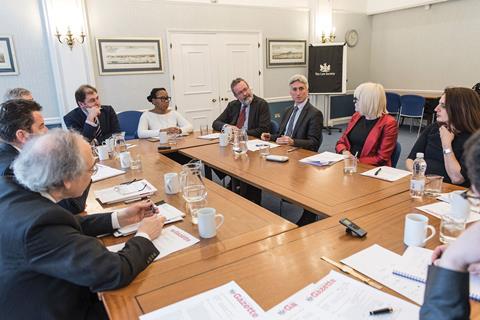

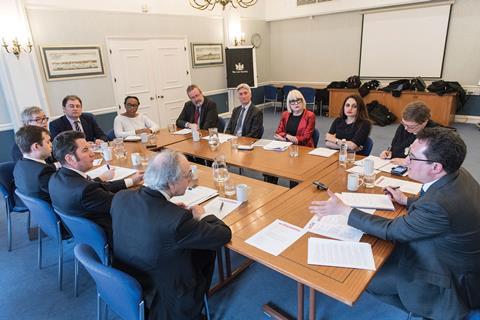

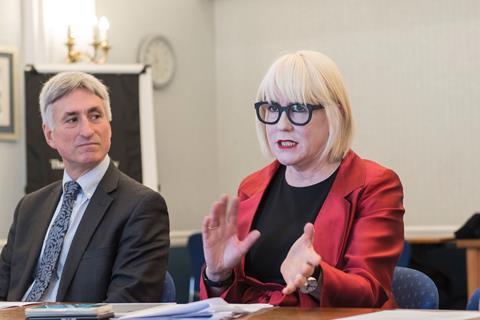
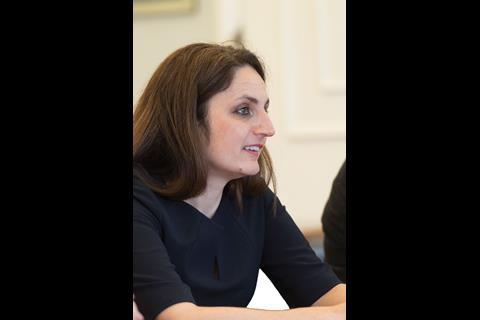
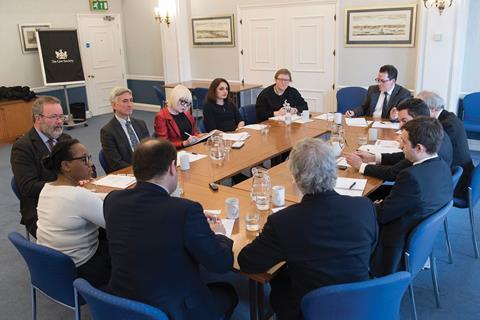


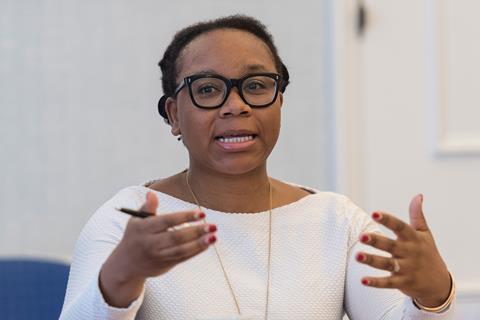








1 Reader's comment